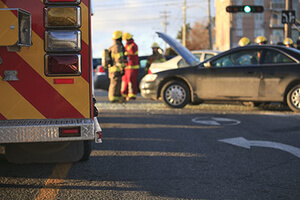Accidents Happen: What You Need to Do After a Car Accident

Knowing what to do following an accident can make a difference, especially if claims arise for injuries or damage resulting from the accident. If you’re involved in an accident, keep the following tips in mind:
- Check to see if everyone in your car is OK. Don’t move anyone who is hurt unless you have to. Neck and back injuries can often be made worse by movement. Wait for medical professionals to arrive.
- Check to see if the other driver is OK. Be cautious, however, about discussing the accident further with them. Tempers often flare after an accident, causing people to say or do things they later regret. You’ll remember everything the other driver says to you. So will they.
If you can safely do so, leave your car where the collision happened. Many people rush to move their cars out of traffic. This can be a mistake if there is a dispute later about how the accident happened. If you can’t leave your vehicle where it is, take photos with your cell phone or camera of the scene before moving it.
- Call the police. If anyone is hurt, be sure to tell them so they can dispatch an ambulance.
- When the police arrive, be sure to provide an accurate summary of how the accident happened. Be sure to include both what you were doing, and what you saw the other driver doing just before the accident. If you are hurt, be sure to tell the officer that – even if you don’t think it’s serious. When adrenaline is high, many injuries can take hours to manifest. If you don’t tell the officer you’re hurt, he will note there were no injuries at the scene.
- If you’re hurt, but don’t think you need an ambulance, tell the officer you’re going to seek medical attention on your own. Otherwise,the officer may simply note that you ‘declined medical attention’, making it sound like you weren’t hurt at all.
- Notify your auto insurance company that you’ve been in an accident.
- Consider seeking legal counsel if the accident was not your fault. Strict time limits apply to making a claim against another driver, and having experienced counsel help you through the process can make all the difference.